When selling a home, closing costs play a significant role in the final financial outcome. These expenses, often overlooked until late in the process, are essential for a smooth and successful transaction. While many sellers focus on listing prices, potential offers, and buyer negotiations, a clear understanding of closing costs can prevent unwelcome surprises and allow for accurate financial planning. Let’s explore what closing costs encompass, the typical fees involved, and how to manage these expenses to ensure a seamless closing process.

What Are Closing Costs?
Closing costs are the fees, taxes, and expenses paid at the end of a real estate transaction. For sellers, these costs cover various services necessary to finalize the sale, transferring the property ownership to the buyer legally and efficiently. While both buyers and sellers pay closing costs, the seller’s fees are unique, often covering services such as title transfers, real estate commissions, and potential repairs. Closing costs are usually deducted directly from the proceeds of the sale, meaning the seller receives a net amount after these expenses are settled.
The amount of closing costs varies based on location, property type, and specific transaction details, but sellers typically spend between 1% and 3% of the home’s sale price. Knowing what expenses fall under closing costs helps a seller estimate net proceeds accurately and avoid surprises. By understanding these fees in advance, sellers can effectively prepare for the financial obligations that come with transferring their property.
Real Estate Commissions
One of the largest components of seller closing costs is the real estate commission. Real estate agents or brokers are typically compensated through a percentage of the home’s sale price. In most transactions, sellers pay the commission for both their agent and the buyer’s agent, with total commissions generally ranging from 5% to 6% of the sale price. This cost is typically split evenly between the listing agent and the buyer’s agent.
While it may seem substantial, this commission covers the services, expertise, and marketing provided by agents to facilitate the sale, from listing the property to negotiating offers and managing transaction details. Many sellers find that working with experienced agents not only leads to a smoother process but also potentially higher offers, offsetting the commission expense. Sellers should confirm commission structures in their listing agreement with their agent, which outlines the percentage due upon the sale’s closing.
Understanding the cost and value of real estate commissions helps sellers gauge their net profit accurately. By factoring in these expenses early, sellers can focus on maximizing their remaining proceeds.
Title Fees and Transfer Taxes
Title fees and transfer taxes are mandatory costs for transferring property ownership from seller to buyer. These fees cover services such as a title search, which verifies that the seller legally owns the property and confirms that no undisclosed liens or claims could affect the sale. Title insurance, often paid by the seller, protects the buyer and lender against future title disputes. This one-time fee varies by state and property value, typically amounting to around 0.5% to 1% of the sale price.
Transfer taxes are another common expense imposed by local or state governments to officially document the property transfer. These fees are typically calculated as a percentage of the sale price and vary widely based on location. Some states, for example, may have relatively low transfer tax rates, while others have more significant percentages or flat-rate fees. Sellers should consult with a real estate professional or title company to understand the specific rates in their area.
Awareness of title fees and transfer taxes allows sellers to account for these costs in their financial planning. By anticipating these expenses, sellers can better estimate the net proceeds they’ll receive after closing.
Seller Concessions and Buyer Incentives
To make their property more attractive in a competitive market, sellers sometimes offer concessions or incentives to potential buyers. Seller concessions are financial incentives that reduce the buyer’s closing costs, making the purchase more affordable. For instance, a seller might agree to cover a portion of the buyer’s loan origination fees, inspection costs, or appraisal fees, which can ease the buyer’s financial burden.
The extent and type of concessions depend on the market conditions and property type. In a buyer’s market, where more homes are for sale than buyers, concessions can increase a property’s appeal. In a seller’s market, where demand is high, concessions are less common but may still be used to close the deal quickly. Sellers should consult their real estate agent to assess whether concessions might be beneficial for their specific property and situation.
While offering concessions can reduce the immediate financial return, it can also expedite the sale by attracting more buyers, especially if the property has been on the market for an extended period. Properly balancing concessions with other closing costs ensures sellers attract interested buyers while maintaining a favorable bottom line.
Repairs and Home Improvements
Pre-sale repairs and home improvements are often overlooked as part of closing costs, yet they directly impact the property’s marketability and final sale price. In some cases, buyers may request specific repairs before agreeing to purchase, and sellers may offer a repair credit instead. Whether large or small, these costs influence the final amount received from the sale.
Proactive sellers often conduct pre-inspections to identify necessary repairs before listing the property. Fixing issues in advance, such as plumbing or electrical problems, can prevent costly requests from buyers later. In competitive markets, minor improvements, such as fresh paint, landscaping, or staging, may enhance appeal and yield a higher offer.
Each repair or improvement should be weighed against its potential impact on the sale price. By anticipating and budgeting for these costs early, sellers can ensure that necessary improvements align with their financial goals.
Mortgage Payoff and Prepayment Penalties
For sellers with an outstanding mortgage on their property, the remaining loan balance must be settled at closing. Mortgage payoff amounts are calculated based on the remaining principal and accrued interest, which can differ slightly from the latest statement due to daily interest accrual. Sellers should consult their lender to obtain an accurate payoff quote before closing.
In some cases, sellers may face prepayment penalties for paying off a mortgage early, especially if the loan was structured with a prepayment clause. These penalties are typically a percentage of the remaining balance or a fixed fee. Not all mortgages include prepayment penalties, so it’s essential to review the loan agreement or consult the lender to confirm.
Understanding mortgage payoff requirements ensures that sellers plan accurately for their remaining balance and net proceeds. By factoring in potential penalties or fees, sellers can prepare for a smooth transition with a clear financial picture.
Miscellaneous Closing Costs
Beyond the more prominent closing costs, additional fees may arise depending on the specifics of the transaction. For instance, escrow fees are often split between buyer and seller, covering the neutral third-party handling of funds and documents. Attorney fees may apply if legal representation is needed to review or prepare documents, particularly in states where an attorney’s involvement is customary.
Other possible costs include HOA transfer fees for properties within homeowners’ associations, prorated property taxes, and utility adjustments. Each of these fees is essential for accurately balancing the final financial details of the transaction, ensuring a clean transfer without unpaid bills or obligations.
Anticipating these miscellaneous costs helps sellers minimize surprises at closing. Clear communication with the escrow officer, real estate agent, or attorney can ensure that all fees are documented and accounted for before the final signing.
Closing Out the Sale
Selling a home involves numerous financial components beyond the sale price alone, with closing costs playing a key role in determining final proceeds. By understanding and preparing for real estate commissions, title fees, potential concessions, repair expenses, mortgage payoffs, and miscellaneous fees, sellers can ensure a more streamlined transaction. Each cost, while adding to the immediate expense, contributes to a legally sound and marketable sale that benefits both parties.
When you’re ready to sell, reach out to discuss how we can maximize your sale’s outcome by planning for every stage of the transaction, including closing costs. Contact me today for a comprehensive approach to selling your home.


